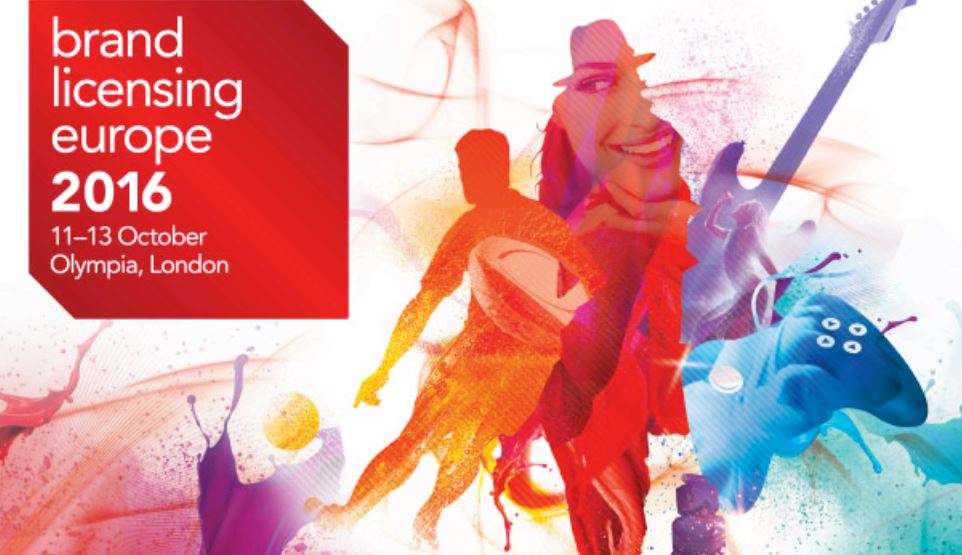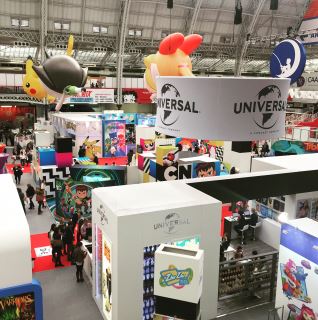
Web Developers
Fung Global Retail & Technology attended the Brand Licensing Europe event, held in London over October 11-13. Here are some of our key takeaways.


TV and Film are Driving Growth in the Global Licensed Merchandise Market
Kelvyn Gardner, Managing Director of the Licensing Industry Merchandisers’ Association, stated that the top three areas that drive global sales of licensed merchandise are: film franchises (the key ones being Star Wars, Frozen, Minions and Marvel movies), ‘Grown Up’ Movies and TV Series (such as Downton Abbey and Game of Thrones) and ‘Adult Licensing’ (such as Fifty Shades of Grey). Gardner emphasized that products based on entertainment and characters account for nearly 43% of global licensed merchandise sales, and that the growth in streamed subscription video on demand (SVOD) is a major contributor to its popularity. He cited the example of 70-year old US-based company, Heritage Lace, that capitalized on the popularity of period British drama Downton Abbey, in the country. It unveiled a range of home décor merchandise in 2013, based on props and scenes from the show, which helped revive its slowing sales. Samantha Tuck, Associate Director of research firm GfK, illustrated the growing popularity of SVOD and its influence on consumers’ choices of licensed merchandise. Amongst those who have access to online content, SVOD accounts of 18% of time spent viewing content online. Many viewers have access to more than one streaming service and about 8% use at least three services, and 72% have pay TV along with SVOD. Tuck noted that there has been tremendous growth in the SVOD segment, but people are unlikely to cancel their pay-TV subscriptions anytime soon. They will, however, reduce their consumption of content through DVDs and Blu-ray discs she said.
DIY and Food and Beverages are Largely Untapped Categories and Can be Explored Further for Licensing Opportunities
Max Templeman, senior manager at GfK, noted that the DIY category could be a segment to explore licensed merchandise opportunities. He noted that during Black Friday week in 2015, small durable appliances saw growth of 20.7% in sales year over year, and the medium durable appliances market saw sales grow 5.7% year over year, and among them branded gardening tools and bakeware were very popular. Philippe Guinaudeau, the director of licensing market research firm Kidz Global, noted that apparel accounts for 16% and toys 15% of the total revenues from licensed merchandise, but food and beverages account for merely 8%. He highlighted that there is a possibility for growth in the food and beverages category if licensors, licensees and manufacturers target the market in a strategic manner. He proposed that targeting the licensed children’s foods segment as a likely growth area, as children spend about 15.5 hours eating and nearly the same amount of time (17.8 hours) before a digital screen. If food manufacturers can incorporate branding strategies into the packaging and marketing of foods regularly consumed by children, they could potentially sell more, he said.Globalising a Brand Can be Beneficial for Licensors and Licensees Alike
Vandana Balachander, the VP of global merchandising for the National Basketball Association (NBA), noted that opening cafés is one of the strategies that the organization used to expand its brand globally. The NBA cafés house interactive concepts for children that helps it build its brand in a new country. Online, the NBA also uses local language and payment terms, in an effort to localize its global website to the countries that it expanded in, Balachander said. Andreas Pletl, head of retail and licensing for Fédération Internationale de Football Association (FIFA), added that one key strategy to employ when expanding online internationally, is to use the experts in a particular sales channel for a country or region. For example, in China, FIFA retails its branded merchandise through e-commerce leader Alibaba, Pletl said. In a discussion about the synergistic relationship that brands and licensees/retailers may have, Julie McCleave, who is the head of licensing at Unilever, noted that licensing can be extremely beneficial to licensees when brands already have an established customer base and heritage that they can leverage to sell their products. Head of licensing at V&A Museums, Lauren Sizeland noted that international consumers may lack awareness of some brands, but retailers can provide a platform to put them before high-street customers.
